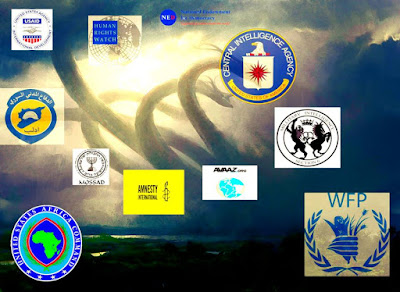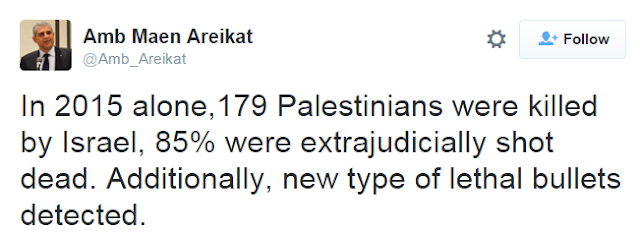Outrage, skepticism greet North Korea's claim of hydrogen bomb test
However, Andrei Lankov, a North Korea expert based in Seoul, South Korea, told Fox News that he was "seriously skeptical" that Pyongyang had tested a hydrogen bomb Wednesday. According to Lankov, North Korea would have needed to divert a large amount of scarce funds to construct such a device, saying it would have been "mission overkill."'US, Israel should ensure Iran not involved in N. Korean nuclear program'
"I believe it did not have the 'signature' of a Hydrogen bomb," said Lankov, who added that he had "absolutely no doubt" the blast was an atomic test, the fourth carried out since 2006 in definance of international and United Nations sanctions.
Late Wednesday, South Korean lawmaker Lee Cheol Woo told the Associated Press that the country's National Intelligence Service had expressed in a private briefing that they believed North Korea had tested an atomic bomb, not a hydrogen bomb.
According to Lee, intelligence officials said that an estimated explosive yield of six kilotons and a magnitude-4.8 earthquake were detected Wednesday, a smaller blast than the estimated explosive yield of 7.9 kilotons and magnitude-4.9 quake that were reported after a February 2013 nuclear test by North Korea, and only a fraction of a typical successful hydrogen bomb test's explosive yield of hundreds of kilotons.
Lee says the agency told him that even a failed hydrogen bomb detonation typically yields tens of kilotons.
After North Korea announced on Wednesday that it had successfully tested a miniaturized hydrogen nuclear bomb, National Infrastructure, Energy and Water Minister Yuval Steinitz linked the test to Israel's suspicions regarding the Iranian nuclear program.Daniel Pipes: Two Things That Could Undo the Islamist Movement
"The test reminds us all that the most important mission is to prevent a similar thing from taking place in Iran: a nuclear agreement first and nuclear weapons later."
Steinitz said that North Korea does not only threaten nations in the Far East, noting that in the past it had transferred nuclear technology to Syria and apparently to Iran as well.
"Israel and the US should increase intelligence sharing in order to ensure that Iran is not breaching its nuclear agreement through involvement in North Korea's nuclear project," Steinitz said.
In July of last year world powers adopted a final, comprehensive agreement with Iran that will govern its nuclear program for over a decade.
In 1994, North Korea signed a nuclear agreement with the US, under the administration of former US president Bill Clinton. He said at the time that the deal meant "North Korea will freeze and then dismantle its nuclear program. South Korea and our other allies will be better protected. The entire world will be safer as we slow the spread of nuclear weapons.”
Clinton said that the “United States and international inspectors will carefully monitor North Korea to make sure it keeps its commitments. Only as it does so will North Korea fully join the community of nations."
Twelve years later, in 2006, North Korea detonated its first underground nuclear explosion.
But weaknesses within, especially squabbling and disapproval, could undo the Islamist movement.Isi Leibler: Out-of-the-box thinking needed to combat terrorism
Infighting became vicious in 2013, when Islamists abruptly stopped their prior pattern of cooperation among themselves and instead began internecine fighting. Yes, the Islamist movement as a whole shares similar goals, but it also contains different intellectuals, groups, and parties with variant ethnic affiliations, tactics, and ideologies.
Its internal divisions have spread fast and far. These include Sunnis vs. Shiites, notably in Syria, Iraq, and Yemen; monarchists vs. republicans, notably in Saudi Arabia; non-violent vs. violent types, notably in Egypt; modernizers vs. medieval revivalists, notably in Tunisia; and plain old personal differences, notably in Turkey. These divisions obstruct the movement by turning its guns inward.
The dynamic here is ancient: As Islamists approach power, they fight amongst themselves for dominance. Differences that hardly mattered when in the wilderness take on great importance as the stakes get higher. In Turkey, for example, the politician Erdoğan and the religious leader Fethullah Gülen cooperated until they dispatched their common enemy, the military, from politics, when they turned against each other.
Unpopularity, the second problem, may be the biggest peril for the movement. As populations experience Islamist rule first hand, they reject it. It's one thing to believe in the abstract about the benefits of Islamic law and quite another to suffer its deprivations, ranging from the Islamic State's totalitarian horrors to the comparatively benign emerging dictatorship in Turkey.
As populations experience Islamist rule first hand, they reject it.
Signs of this discontent include the large majorities of Iranians who reject the Islamic Republic, the wave of exiles out of Somalia, and the massive Egyptian demonstrations of 2013 protesting a single year of the Muslim Brotherhood in power. As with fascist and communist rule, Islamist sovereignty often leads to people voting with their feet.
Of course, the greatest and most effective deterrent is to reintroduce targeted assassinations, which will make the leaders think twice before indulging in terrorist acts. Such action is also likely to impact on the PA and oblige it to temper its current incitement.
These suggestions are complex and can lead to other problems. But Israelis can take pride in the fact that they are capable of creative, outside-the-box solutions and have frequently adopted unconventional methods that proved successful.
The status quo is unacceptable and in the absence of remedial action it is likely to worsen.
The government must determine a strategy and convey the message unequivocally to Hamas. Now may be the best time to bite the bullet. That Iran and Hezbollah are currently engaged in a bitter battle in Syria makes it less likely that, in the event of war with Hamas, we would face a two-front confrontation The international community, which is not unduly friendly toward Israel, will presumably again call for restraint and proportionality and Israel will still be condemned in the majority of international forums.
But today, with the fear being generated by Islamic State terrorism around the world, many countries – even as they publicly join the inevitable chorus of condemnation – are likely to have a greater understanding of our determination to protect our citizens from brutal terrorist attacks than in the past.




































